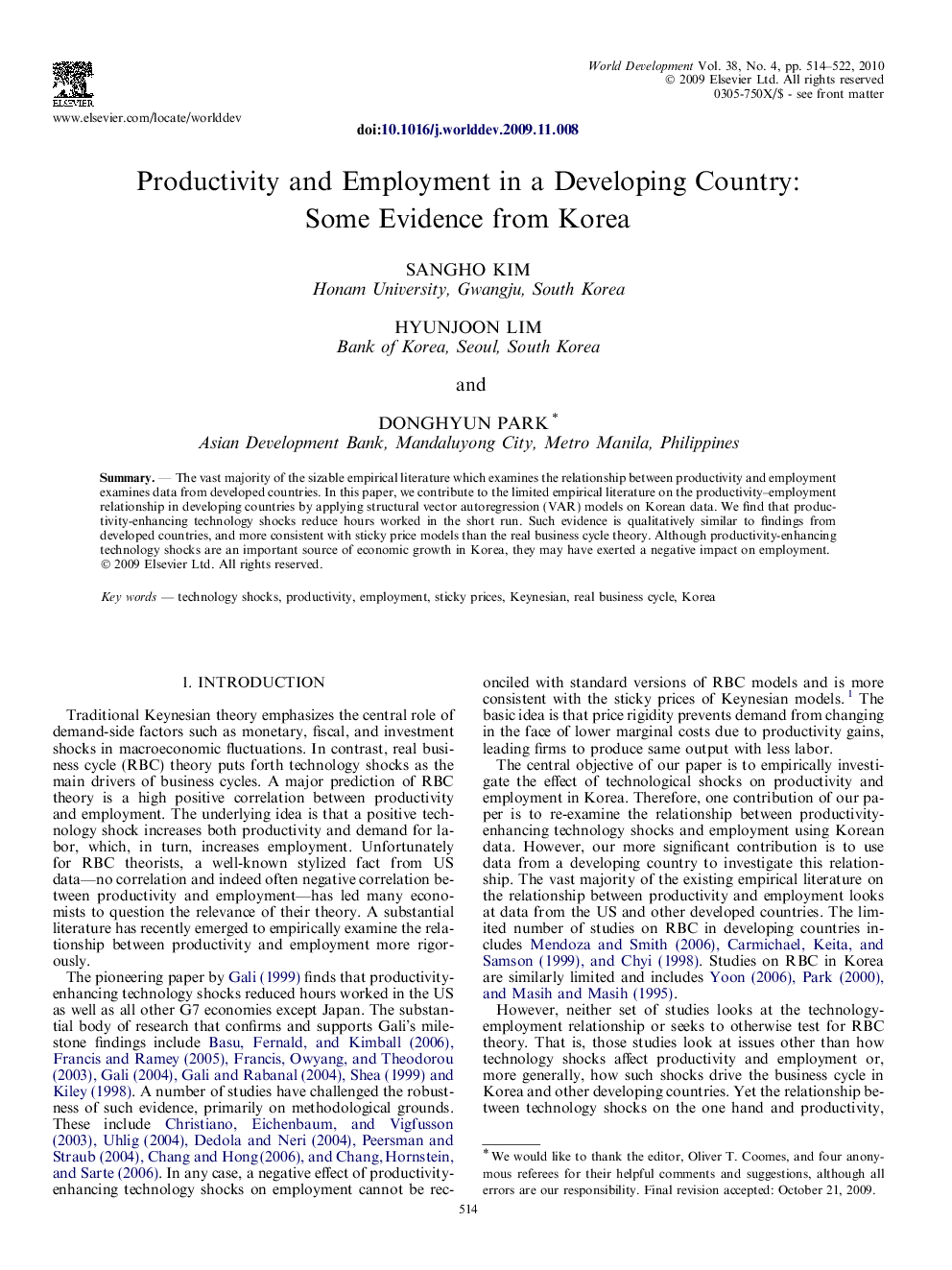| Article ID | Journal | Published Year | Pages | File Type |
|---|---|---|---|---|
| 991634 | World Development | 2010 | 9 Pages |
SummaryThe vast majority of the sizable empirical literature which examines the relationship between productivity and employment examines data from developed countries. In this paper, we contribute to the limited empirical literature on the productivity–employment relationship in developing countries by applying structural vector autoregression (VAR) models on Korean data. We find that productivity-enhancing technology shocks reduce hours worked in the short run. Such evidence is qualitatively similar to findings from developed countries, and more consistent with sticky price models than the real business cycle theory. Although productivity-enhancing technology shocks are an important source of economic growth in Korea, they may have exerted a negative impact on employment.
